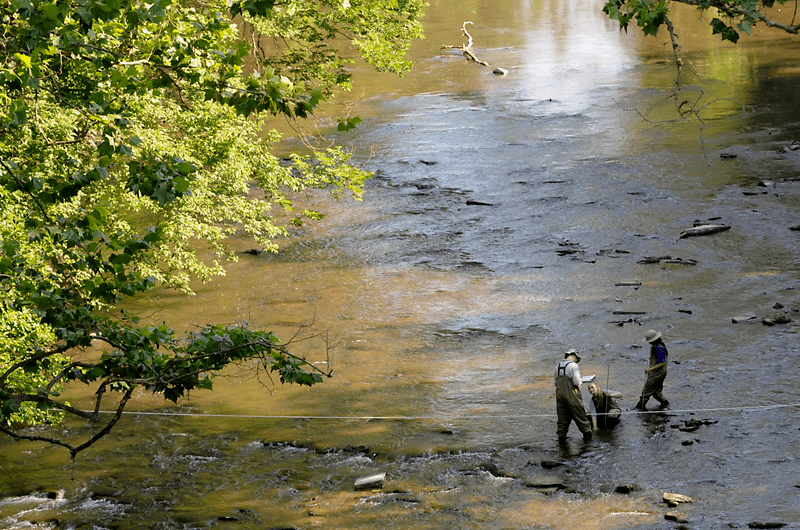Academy of Natural Sciences Receives Major Grant in Multi-State Program to Protect Drinking Water

- Drexel Environmental Collaboratory Releases Cross-Sector Findings on Severe Weather Recovery Challenges
- Drexel Launches the Manuel Stamatakis Center for Alternative Investments at the LeBow College of Business
- How and When Could AI Be Used in Emergency Medicine?
- Faculty Highlights: Recent Awards and Grants

The Academy of Natural Sciences of Drexel University has received a major, three-year grant from the William Penn Foundation to be one of the organizations coordinating the foundation’s initiative to protect and restore critical sources of drinking water for residents in the Delaware River watershed.
The Academy of Natural Sciences will coordinate and oversee ecological monitoring projects by more than 40 national and regional environmental organizations in eight designated geographic areas in Pennsylvania, New Jersey, New York and Delaware. The $3.2 million grant also calls for the Academy to develop baseline water-quality data and to integrate its existing long-term watershed research and monitoring into new datasets and models aimed at targeting specific areas in the Delaware watershed for restoration and conservation.
The Academy has been monitoring watersheds and conducting aquatic research for more than 70 years. Since February 2012, the Academy has been working in an unprecedented collaboration with the William Penn Foundation, and in partnership with the Open Space Institute and the National Fish and Wildlife Foundation, to provide planning and technical support to develop and implement the William Penn Foundation’s innovative Delaware Watershed Conservation Program.
In the first phase of the project, the Academy’s work focused on identifying eight “clusters” of sub-watersheds where data will be collected and studied. These clusters, covering about 25 percent of the total Delaware River Basin, were shown to have the most potential to benefit from restoration or protection.
The foundation recently announced the next step in the program to protect and restore water quality: $35 million in grants to implement the work of protecting land, restoring streams, testing innovative approaches in ecologically significant places and scientifically monitoring results over time. In this next 3-year phase, the Academy will oversee local monitoring, conservation and restoration strategies focused on upstream forestland preservation, agricultural impact and urban storm water assessment. The goal is to improve water quality and citizen awareness and stewardship in the region of 15 million residents.
Academy President and CEO George W. Gephart Jr. noted the watershed protection plan’s unique integration of science, public policy and citizen engagement.
“The Academy is delighted to have had the opportunity to help shape this exciting new watershed protection program,” Gephart said. “We are particularly pleased to have been asked to continue on and provide our expertise to monitor and support the outcomes of the foundation’s investments.”
Laura Sparks, chief philanthropy officer of the William Penn Foundation, said, “We look forward to having an array of data and scientific assessments to guide and refine the strategies being applied to protect and restore water quality in the Delaware.”
Laura Sparks, chief philanthropy officer of the William Penn Foundation, said, “We look forward to having an array of data and scientific assessments to guide and refine the strategies being applied to protect and restore water quality in the Delaware.”
The Delaware River Basin features the nation’s longest river without a dam east of the Mississippi. Besides providing drinking water to millions of people, the river basin includes large expanses of natural lands that both protect clean water and provide habitats of critical importance.
Nevertheless, threats to water quality and supply abound. These include polluted runoff from farm fields; polluted storm water runoff from streets; the increasing extraction of natural gas; and the loss of critical forested lands due to inappropriately sited residential and commercial development.
The eight clusters along the Delaware River’s tributaries where data will be collected were selected based on land use, acid mine drainage, conservation easements, and land trust areas. They are designated as: the Poconos and Kittatinny, New Jersey Highlands, Upper Lehigh, Middle Schuylkill, Schuylkill Highlands, Brandywine and Christina, upstream suburban Philadelphia, and the Kirkwood–Cohansey Aquifer.
Drexel News is produced by
University Marketing and Communications.